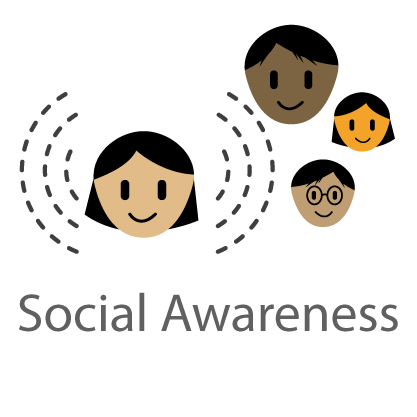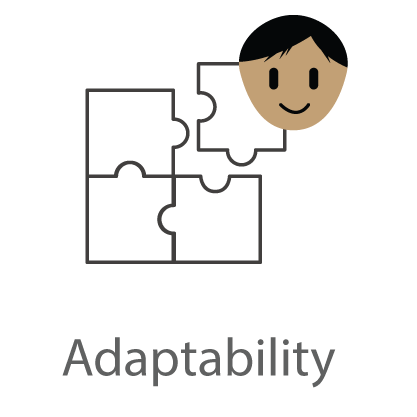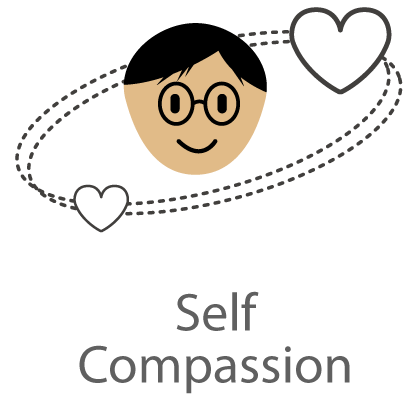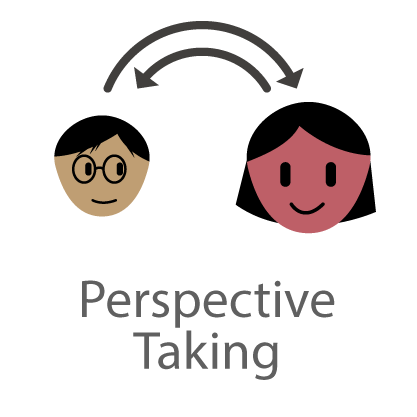Screen size not supported
Unfortunately our platform is currently restricted to large display sizes. Please increase the window size or visit using a suitable device. Apologies for any inconvenience caused.


Social Awareness is the ability to form connections and work with people from diverse backgrounds in terms of religion, caste, gender, socio-economic strata, geographical location etc. It is the ability to understand, empathise and accept people and practices that are different from our own. It is also the ability to recognise and exercise our rights and duties as responsible citizens.
Social Awareness includes being sensitive to local and global environmental concerns, being aware of and involved in addressing social issues, respecting and protecting the rights of others, especially those of vulnerable populations (women, children, elderly, people with disabilities, economically and socially marginalised communities etc.), thus contributing to the collective wellbeing of society.
Social Awareness In Action
The person will be able to:


Self-Compassion is the ability to practise kindness and acceptance towards ourselves, despite our limitations and especially when we fail or feel inadequate. It includes the recognition of our common humanity, accepting that along with everyone else we are flawed and imperfect individuals. It involves practising mindfulness, cultivating well-being and resilience, and accepting our reality without rancour. Being self-compassionate offers us comfort, validation, protection and the motivation to improve ourselves.
Self-compassionate people tend to remain emotionally stable, are more likely to persevere despite multiple failures, remain present in the moment and function well even under stress.
Self-Compassion In Action
The person will be able to:


Empathy is the ability to emotionally understand what other people feel, see things from their point of view and context, imagine ourselves in their place and respond appropriately. Empathy is relating to others with acceptance, understanding, and sensitivity to their diverse backgrounds, experiences and perspectives, and taking action accordingly.
Empathy plays an important role in being a socially competent person with meaningful social relationships. The ability to empathise is important for promoting positive behaviours towards others, and facilitating social interactions and relationships, thus motivating altruistic behaviour. This skill also makes us challenge intolerance, bias and stereotyping when we see it.
Empathy In Action
The person will be able to:


Perspective Taking is the ability to imagine and understand a situation based on how it appears to others and their cognitive and emotional response to it. It is the ability to recognize their points of view, experiences and beliefs even when different from our own. This recognition creates the basis of mutual understanding, leading to new learning, reshaping our social interactions and developing new world views that are broader and more inclusive in nature.
Overall, Perspective Taking promotes social bonds, unlocks the potential of diversity in teams, leads to creative solutions and diminishes the possibility and impact of stereotyping.
Perspective Taking In Action
The person will be able to:


Communication is the ability to express ourselves and respond to people, both verbally and non-verbally, in ways that are appropriate to our culture and situation. This includes listening attentively and respectfully; expressing our opinions and desires, needs and fears in an assertive manner; as well as being able to ask for advice and help in times of need. It is a way of connecting with others by conveying our ideas, facts, thoughts, feelings, and values.
Effective Communication helps us better understand a person or situation and enables us to resolve differences, build trust and respect, and create environments where creative ideas, problem solving, affection, and caring can flourish.
Communication In Action
The person is able to:

Unfortunately our platform is currently restricted to large display sizes. Please increase the window size or visit using a suitable device. Apologies for any inconvenience caused.
| Cookie | Duration | Description |
|---|---|---|
| _hjAbsoluteSessionInProgress | 30 minutes | Hotjar sets this cookie to detect a user's first pageview session, which is a True/False flag set by the cookie. |
| Cookie | Duration | Description |
|---|---|---|
| _hjFirstSeen | 30 minutes | Hotjar sets this cookie to identify a new user’s first session. It stores the true/false value, indicating whether it was the first time Hotjar saw this user. |
| _hjRecordingEnabled | never | Hotjar sets this cookie when a Recording starts and is read when the recording module is initialized, to see if the user is already in a recording in a particular session. |
| _hjRecordingLastActivity | never | Hotjar sets this cookie when a user recording starts and when data is sent through the WebSocket. |
| _hjSession_* | 30 minutes | Hotjar sets this cookie to ensure data from subsequent visits to the same site is attributed to the same user ID, which persists in the Hotjar User ID, which is unique to that site. |
| _hjSessionUser_* | 1 year | Hotjar sets this cookie to ensure data from subsequent visits to the same site is attributed to the same user ID, which persists in the Hotjar User ID, which is unique to that site. |
| Cookie | Duration | Description |
|---|---|---|
| _hjCookieTest | session | No description available. |
| _hjIncludedInSessionSample_3589320 | 2 minutes | Description is currently not available. |